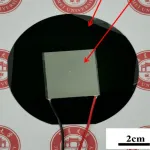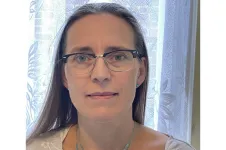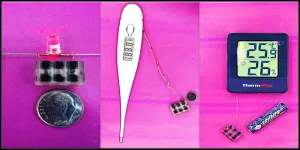(Press-News.org) The upcoming launch of the SMARTER center in the West Virginia University Benjamin M. Statler College of Engineering and Mineral Resources will direct $1.5 million in federal funding toward the development of mobility solutions for transportation challenges faced by rural residents.
Beginning this summer, West Virginia’s SMARTER center — standing for Sustainable Mobility and Accessibility Regional Transportation Equity Research — will position the state to begin taking advantage of cutting-edge technologies like self-driving cars within the next decade, according to lead researcher and assistant professor Kakan Dey.
The funds, from the U.S. Department of Transportation, will go toward ensuring the most remote, economically distressed communities have equitable access to mobility.
“In West Virginia, our primary mobility challenges come from rural settings and affect low-income communities,” Dey said. “Low-income households that don’t own automobiles are compromised in both their quality of life and economic opportunity, but solutions like transit services are not economically viable without sufficient ridership.”
Knowing that public buses make little financial sense in rural areas and that many low-income residents can’t afford vehicles to get to jobs, supermarkets or doctors’ offices, Dey sees emerging technologies like self-driving, electric cars and ride-sharing services as ways to improve those lives substantially.
Dey said he thinks enabling someone to use an app to snag a carpool spot in a lightweight, self-driving automobile is more sustainable, economically and environmentally, than current transportation infrastructure dominated by personal auto ownership and large, often mostly empty, buses that travel fixed routes on fixed schedules.
Even in areas where buses do run, Dey said the “first- and last-mile problem” is a major challenge. That refers to the difficulty of getting from home to the pick-up bus stop, then getting from the drop-off bus stop to the final destination. He believes lessons learned in West Virginia about challenges like that one can help build the template for other states’ attempts to bring mobility to rural areas.
Dey is aware that investing research in advanced technologies may seem counterintuitive in a state where out-of-state tourists’ electric vehicles have been known to run out of battery while traveling the many miles between charging stations and where plenty of places lack not just high-speed internet but cell phone service, too. The center is ready to tackle those challenges, he said.
“SMARTER will develop mobility solutions that address infrastructure barriers, like the suitability of rural roads for self-driving cars, as well as technology barriers like the lack of broadband and cellular connectivity, lack of access to smartphones and demographic characteristics such as a higher percentage of people with disabilities. We want to ensure that emerging mobility solutions are accessible to all people.”
Researchers will investigate the concept of “mobility as a service,” looking at approaches that incorporate multiple modes of transportation, including on-demand transit such as a taxi or Uber, ride sharing — where someone who’s driving themselves somewhere in their own car takes along one or more passengers for a fee, carpooling — where multiple customers share a single vehicle, bike sharing, e-scooters and more.
Dey and colleagues David Martinelli, professor, and Dimitra Pyrialakou, assistant professor, both of the Wadsworth Department of Civil and Environmental Engineering, will work closely with stakeholders such as the Morgantown Monongalia Metropolitan Planning Organization, the West Virginia Department of Highways and Mountain Line Transit.
Dey said the center intends to form partnerships to provide continuing education as it seeks to increase the mobility workforce from rural communities. It will also collaborate with Statler College programs for K-12 students and with Statler’s skilled trades apprenticeship program to develop talent and interest in transportation careers among diverse and underrepresented groups.
With other SMARTER centers in states throughout the mid-Atlantic region, led by Baltimore's Morgan State University, WVU SMARTER will innovate the sustainability and equity of mobility services across underserved communities over the next five years.
“We need transportation services to do most activities in our everyday lives,” Dey said. “For rural communities, where options are often very limited, mobility can be a lifeline. In these remote areas, there’s a very real societal impact we can make, and our research has the potential to change lives significantly. That promise and the vision we have is very exciting for us.”
END
WVU transportation center will bring mobility to rural areas, opening access to country roads
2023-04-18
ELSE PRESS RELEASES FROM THIS DATE:
Do prescription opioids impact cognitive function in older adults?
2023-04-18
ROCHESTER, Minn. — Prescription opioid use could have a negative effect on cognitive function in older adults, according to a recent Mayo Clinic study published in the Journal of the American Geriatrics Society. The population-based observational study used data from the Mayo Clinic Study of Aging, a research initiative examining the cognitive decline in older people for nearly 20 years.
Findings
The study found that 70% of participants received at least one opioid prescription over an ...
Physics professor receives best paper award
2023-04-18
Wei Chen, professor of physics at The University of Texas at Arlington, is co-author of an article that has received a prestigious best paper award from Bioactive Materials, an international, peer-reviewed research publication.
His study, titled “Nitrogen-doped fluorescence carbon dots as multi-mechanism detection for iodide and curcumin in biological and food samples,” is about the development of nitrogen-doped fluorescent carbon dots as a detection mechanism for iodine and curcumin in food.
The Bioactive Materials best paper award is fully merit-based and is given to researchers who publish articles that make significant ...
New passive device continuously generates electricity during the day or night
2023-04-18
WASHINGTON — Researchers have developed a new thermoelectric generator (TEG) that can continuously generate electricity using heat from the sun and a radiative element that releases heat into the air. Because it works during the day or night and in cloudy conditions, the new self-powered TEG could provide a reliable power source for small electronic devices such as outdoor sensors.
“Traditional power sources like batteries are limited in capacity and require regular replacement or recharging, which can be inconvenient and unsustainable,” said research team leader Jing Liu from Jimei University in China. “Our new TEG design could offer a ...
Casino Guru calls on City, University of London expertise to research and recommend best-practice for self-exclusion standards
2023-04-18
Casino Guru, a global gambling authority with the most extensive database of online casinos, is partnering with City, University of London, to identify best practice in online gambling self-exclusion and to recommend a set of standards for adoption across different jurisdictions.
The origins of the project can be traced back to Casino Guru's Global Self-Exclusion Initiative, launched back in 2020, whose aim is to establish an online self-exclusion scheme on a global scale that would ...
Next decade decisive for PV growth on the path to 2050
2023-04-18
Global experts on solar power strongly urge a commitment to the continued growth of photovoltaic (PV) manufacturing and deployment to power the planet, arguing that lowballing projections for PV growth while waiting for a consensus on other energy pathways or the emergence of technological last-minute miracles “is no longer an option.”
The consensus reached by participants in the 3rd Terawatt Workshop last year follows increasingly large projections from multiple groups around the world on the need for large-scale PV to drive electrification and greenhouse gas reduction. The increasing acceptance of PV ...
AACR: Early trial results show benefits of FGFR inhibitors and PARP/ATR inhibitor combinations in multiple tumor types
2023-04-18
ABSTRACTS: CT016, CT018
ORLANDO, Fla. ― Researchers from The University of Texas MD Anderson Cancer Center presented promising findings from multiple clinical trials today at the American Association for Cancer Research (AACR) Annual Meeting 2023. The studies, which describe results from a novel FGFR inhibitor and from new PARP/ATR inhibitor combinations, were featured in a plenary session highlighting novel biomarker-driven molecularly targeted therapy trials. Information on all MD Anderson AACR Annual Meeting content can be found at MDAnderson.org/AACR.
Basket trial results suggest wider population may benefit from FGFR inhibitor pemigatinib ...
Tiny biobattery with 100-year shelf life runs on bacteria
2023-04-18
BINGHAMTON, N.Y. -- A tiny biobattery that could still work after 100 years has been developed by researchers at Binghamton University, State University of New York.
Last fall, Binghamton University Professor Seokheun “Sean” Choi and his Bioelectronics and Microsystems Laboratory published their research into an ingestible biobattery activated by the Ph factor of the human intestine.
Now, he and PhD student Maryam Rezaie have taken what they learned and incorporated it into new ideas for use outside the body.
A new study in the journal Small, which covers nanotechnology, shares the results from using spore-forming bacteria similar ...
Limited resources leave youth vulnerable to digital abuse
2023-04-18
ITHACA, N.Y. – Youth in the U.S. are targets of cross-platform digital abuse from peers, strangers, offline acquaintances and even relatives, with threats ranging from harassment and sexual violence to financial fraud, according to a new study from Cornell University and Google researchers.
Aided by firsthand accounts, researchers identified the need for more resources to educate youth and parents on digital abuse. They call for better communication and coordination among adult stakeholders in implementing sound protective practices.
“We really need to take a closer look at the types of things that young people are experiencing online, because these experiences ...
In some US schools, 1 in 4 students report misusing prescription stimulants
2023-04-18
U.S. middle and high schools with the most students taking prescription stimulants to treat ADHD also had, overall, the highest percentage of students who misused prescription stimulants within the past year.
The University of Michigan-led study highlights a significant association between ADHD stimulant therapy in schools and prescription stimulant misuse, said Sean Esteban McCabe, U-M professor of nursing and principal investigator on the study.
At some schools, 25% or more of kids reported misusing prescription stimulants in the past year—meaning they used ...
USPSTF statement on screening for skin cancer
2023-04-18
Bottom Line: The U.S. Preventive Services Task Force (USPSTF) concludes that the current evidence is insufficient to assess the balance of benefits and harms of visual skin examination by a clinician to screen for skin cancer in adolescents and adults. Skin cancer is the most commonly diagnosed cancer in the U.S. There are different types of skin cancer varying in disease incidence and severity. Basal and squamous cell carcinomas are the most common types of skin cancer but infrequently lead to death or substantial morbidity. Melanomas represent about 1% of skin cancer and cause the most skin cancer deaths. The USPSTF routinely ...






